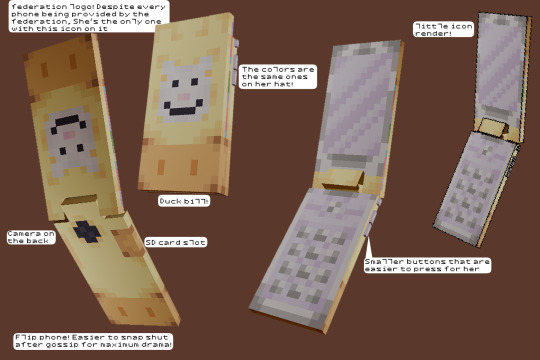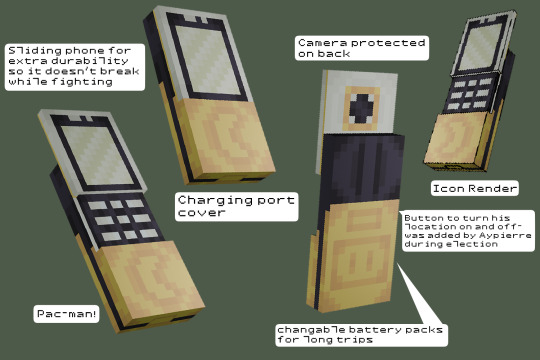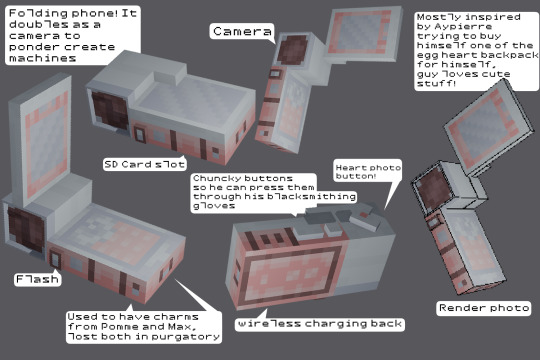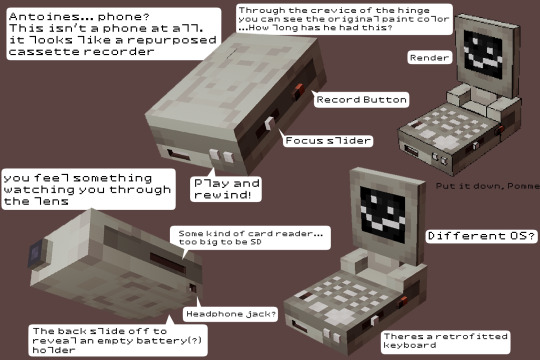Text
I understand the "I will die for you" ship dynamic, but what about the "I will not let you die, I will not let myself die- we will, at any cost, survive" kind of couple?
52K notes
·
View notes
Text
We ask your questions so you don’t have to! Submit your questions to have them posted anonymously as polls.
#i only really read nonfiction#or like learning books#rb#this month ive read:#a narrative history book in the 1930s#a philosophy book#a bunch of wikipedia for various things#a couple medical and software journals/articles for an essay#and now im reading what is essentially a dictionary#👍
2K notes
·
View notes
Text
internet company be like tsk tsk tsk if you use too much data this month we’ll reduce your speeds to 120kbps!! And i look at my download speed of 24 times slower than that and just stare
0 notes
Text
#i blocked someone 5 years ago forgot about it#lost my main blog functionality#and randomly out of nowhere i coincidentally needed to contact them so i had to make a new acc in order to dm#bc i couldnt unblock them#i. dont even remember why i blocked them atp#rb#poll
3K notes
·
View notes
Text
hey guys i made the "cooper or jimmy" quiz
#90%#missed one grrr#to be fair though jimmy has been my main pov in shit for years at this point#and i was a cooper fan in 2019 + one of my best friends is obsessed w him#rb#no id
398 notes
·
View notes
Text
175 notes
·
View notes
Text
i have a burning question
240 notes
·
View notes
Text
im laughing so hard because no matter what song you listen to

spiderman dances to the beat
no matter what song
ive been testing it and lauing my ass off for an hour
2M notes
·
View notes
Text
im laughing so hard because no matter what song you listen to

spiderman dances to the beat
no matter what song
ive been testing it and lauing my ass off for an hour
2M notes
·
View notes
Text
[RUINING THE LIVES OF PEOPLE WHO ARE NOT REAL] i am playing. With my touys
10K notes
·
View notes
Note
Hi! Just wanted to ask. How can I give my students assignments that are chat-gpt proof? Or that they won't just copy the answer without at least doing some editing?
Hi! So, I don't think anything is ChatGPT-proof. You fundamentally cannot stop people from using it to take a shortcut. You can't even stop them from copying the answer without editing it. However, I think you can work with this reality. So, you can do three things:
Don't be a cop about it.
If you make your objective "stop the children from using the thing to cheat," you are focusing on the wrong thing. You will be constantly scrutinizing every submission with suspicion, you will be accusing people of cheating--and some of them will not have cheated, and they will remember this forever--and you will be aiming at enforcement (which is trying to hold back the sea) instead of on inviting and supporting learning whenever and wherever possible. (I'll come back to this under item 2.)
Regarding why enforcement is holding back the sea: It is fundamentally rational for them to do this. We, who "love learning" (i.e. are good at what our academic system sees as learning, for various reasons have built our lives around that, happen to enjoy these activities), see everything they might cheat themselves of by doing it, because we know what we got out of doing this type of work. Many students, however--especially at the kind of school I teach at--are there to get the piece of paper that might, if they're lucky, allow them access to a relatively livable and stable income. The things that are wrong with this fact are structural and nothing to do with students' failings as people, or (tfuh) laziness, or whatever. We cannot make this not true (we can certainly try to push against it in certain ways, but that only goes so far). More pragmatically, chatgpt and similar are going to keep getting better, and detecting them is going to get harder, and your relationships with your students will be further and further damaged as you are forced to hound them more, suspect them more, falsely accuse more people, while also looking like an idiot because plenty of them will get away with it. A productive classroom requires trust. The trust goes both ways. Being a cop about this will destroy it in both directions.
So the first thing you have to do is really, truly accept that some of them are going to use it and you are not always going to know when they do. And when I say accept this, I mean you actually need to be ok with it. I find it helps to remember that the fact that a bot can produce writing to a standard that makes teachers worry means we have been teaching people to be shitty writers. I don't know that so much is lost if we devalue the 5-paragraph SAT essay and its brethren.
So the reason my policy is to say it's ok to use chatgpt or similar as long as you tell me so and give me some thinking about what you got from using it is that a) I am dropping the charade that we don't all know what's going on and thereby making it (pedagogical term) chill; b) I am modeling/suggesting that if you use it, it's a good idea to be critical about what it tells you (which I desperately want everyone to know in general, not just my students in a classroom); c) I am providing an invitation to learn from using chatgpt, rather than avoid learning by using it. Plenty of them won't take me up on that. That's fine (see item 3 below).
So ok, we have at least established the goal of coming at it from acceptance. Then what do you do at that point?
Think about what is unique to your class and your students and build assignments around that.
Assignments, of course, don't have to be simply "what did Author mean by Term" or "list the significant thingies." A prof I used to TA under gave students the option of interviewing a family member or friend about their experiences with public housing in the week we taught public housing. Someone I know who teaches a college biology class has an illustration-based assignment to draw in the artsier students who are in her class against their will. I used to have an extra-credit question that asked them to pick anything in the city that they thought might be some kind of clue about the past in that place, do some research about it, and tell me what they found out and how. (And that's how I learned how Canal St. got its name! Learning something you didn't know from a student's work is one of the greatest feelings there is.) One prompt I intend to use in this class will be something to the effect of, "Do you own anything--a t-shirt, a mug, a phone case--that has the outline of your city, state, or country on it? Why? How did you get it, and what does having this item with this symbol on it mean to you? Whether you personally have one or not, why do you think so many people own items like this?" (This is for political geography week, if anyone's wondering.)
These are all things that target students' personal interests and capabilities, the environments they live in, and their relationships within their communities. Chatgpt can fake that stuff, but not very well. My advisor intends to use prompts that refer directly to things he said in class or conversations that were had in class, rather than to a given reading, in hopes that that will also make it harder for chatgpt to fake well because it won't have the context. The more your class is designed around the specific institution you teach at and student body you serve, the easier that is to do. (Obviously, how possible that is is going to vary based on what you're teaching. When I taught Urban Studies using the city we all lived in as the example all through the semester, it was so easy to make everything very tailored to the students I had in that class that semester. That's not the same--or it doesn't work the same way--if you're teaching Shakespeare. But I know someone who performs monologues from the plays in class and has his students direct him and give him notes as a way of drawing them into the speech and its niceties of meaning. Chatgpt is never going to know what stage directions were given in that room. There are possibilities.) This is all, I guess, a long way of saying that you'll have a better time constructing assignments chatgpt will be bad at if you view your class as a particular situation, occurring only once (these people, this year), which is a situation that has the purpose of encouraging thought--rather than as an information-transfer mechanism. Of course information transfer happens, but that is not what I and my students are doing together here.
Now, they absolutely can plug this type of prompt into chatgpt. I've tried it myself. I asked it to give me a personal essay about the political geography prompt and a critical personal essay about the same thing. (I recommend doing this with your own prospective assignments! See what they'd get and whether it's something you'd grade highly. If it is, then change either the goal of the assignment or at least the prompt.) Both of them were decent if you are grading the miserable 5-paragraph essay. Both of them were garbage if you are looking for evidence of a person turning their attention for the first time to something they have taken for granted all their lives. Chatgpt has neither personality nor experiences, so it makes incredibly vague, general statements in the first person that are dull as dishwater and simply do not engage with what the prompt is really asking for. I already graded on "tell me what you think of this/how this relates to your life" in addition to "did you understand the reading," because what I care about is whether they're thinking. So students absolutely can and will plug that prompt into chatgpt and simply c/p the output. They just won't get high marks for it.
If they're fine with not getting high marks, then okay. For a lot of them this is an elective they're taking essentially at random to get that piece of paper; I'm not gonna knock the hustle, and (see item 1) I couldn't stop them if I wanted to. What I can do is try to make class time engaging, build relationships with them that make them feel good about telling me their thoughts, and present them with a variety of assignments that create opportunities for different strengths, points of interest, and ways into the material, in hopes of hooking as many different people in as many different ways as I can.
This brings me back to what I said about inviting learning. Because I have never yet in my life taught a course that was for people majoring in the subject, I long ago accepted that I cannot get everyone to engage with every concept, subject, or idea (or even most of them). All I can do is invite them to get interested in the thing at hand in every class, in every assignment, in every choice of reading, in every question I ask them. How frequently each person accepts these invitations (and which ones) is going to vary hugely. But I also accept that people often need to be invited more than once, and even if they don't want to go through the door I'm holding open for them right now, the fact that they were invited this time might make it more likely for them to go through it the next time it comes up, or the time after that. I'll never know what will come of all of these invitations, and that's great, actually. I don't want to make them care about everything I care about, or know everything I know. All I want is to offer them new ways to be curious.
Therefore: if they use chatgpt to refuse an invitation this week, fine. That would probably have happened anyway in a lot of cases even without chatgpt. But, just as before, I can snag some of those people's attention on one part of this module in class tomorrow. Some of them I'll get next time with a different type of assignment. Some of them I'll hook for a moment with a joke. I don't take the times that doesn't happen as failures. But the times that it does are all wins that are not diminished by the times it doesn't.
Actually try to think of ways to use chatgpt to promote learning.
I DREAM of the day I'm teaching something where it makes sense to have students edit an AI-written text. Editing is an incredible way to get better at writing. I could generate one in class and we could do it all together. I could give them a prompt, ask them to feed it into chatgpt, and ask them to turn in both what they got and some notes on how they think it could be better. I could give them a pretty traditional "In Text, Author says Thing. What did Author mean by that?" prompt, have them get an answer from chatgpt, and then ask them to fact-check it. Etc. All of these get them thinking about written communication and, incidentally, demonstrate the tool's limitations.
I'm sure there are and will be tons of much more creative ideas for how to incorporate chatgpt rather than fight it. (Once upon a time, the idea of letting students use calculators in math class was also scandalous to many teachers.) I have some geography-specific ideas for how to use image generation as well. When it comes specifically to teaching, I think it's a waste of time for us to be handwringing instead of applying ourselves to this question. I am well aware of the political and ethical problems with chatgpt, and that's something to discuss with, probably, more advanced students in a seminar setting. But we won't (per item 1) get very far simply insisting that Thing Bad and Thing Stupid. So how do we use it to invite learning? That's the question I'm interested in.
Finally, because tangential to your question: I think there's nothing wrong with bringing back more in-class writing and even oral exams (along with take-home assignments that appeal to strengths and interests other than expository writing as mentioned above). These assessments play to different strengths than written take-homes. For some students, that means they'll be harder or scarier; by the same token, for other students they'll be easier and more confidence-building. (Plus, "being able to think on your feet" is also a very good ~real-world skill~ to teach.) In the spirit of trying to offer as many ways in as possible, I think that kind of diversification in assignments is a perfectly good idea.
#comment in notes about among us is cool too#im generally anti ai but this post is really well thought out wrt policies and motives for using it#rb
1K notes
·
View notes
Text
Qsmp French Comms Links Headcanons
I have returned with the full version of this post. So basically for those who aren't aware theres a pretty popular headcanon that every character in the qsmp has like a phone/comm link that they use to send/receive messages So made my own 3ds models of what roughly I think they would look like. This post will cover Antoine, Baghera, Aypierre and Etoiles. I took a lot of inspiration from old style flip phones and I'll show which models I used specifically. This will probably be a long post with a lot of pictures lmao this kinda got out of hand.
First off, Queen of gossip herself, Baghera!

The main inspiration is a NEC N906iu Pink Diamond!

The French Beast, Etoiles!

Mainly inspired by nokia 8800

Master of create and resident capitalist, Aypierre!

inspired by a Nokia N93i

And finally, the resident Eldritch Horror Normal human being like you and me, Antoine Daniel!

Inspired by a Panasonic D Snap SV-AV20

291 notes
·
View notes
Text
If you had to pick, what's the ONE trait in a fictional character that makes you immediately go "oh this one's mine"
110K notes
·
View notes
Text
There's something so crunchy and rich about a character who genuinely, courageously, and vehemently tries to do the right thing all the time... but because the world is complicated and they don't always have all the information, they don't always know what the right thing is or the efforts they do end up not working out like they thought.
It's interesting, leads to excellent conflict and character exploration. It gets a good theme with regarding what is the right thing in complicated circumstances, and can lead to interesting plots and consequences. It's realistic in a good way.
4K notes
·
View notes
Text
For the purposes of this poll please just stick to birth names! I'd like to do another poll for names people chose themselves later in life.
14K notes
·
View notes

